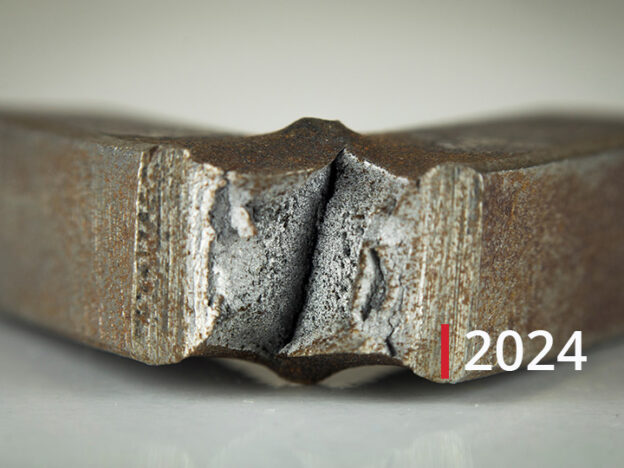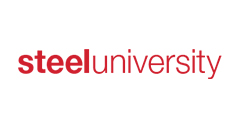
Date: 9 to 13 September 2024.
Estimated Time: 5 days, 8 hours per day.
Language: English.
Course delivery: Residential Sessions.
Held venue: Tecnalia (Donostia-San Sebastián, Spain).

Description
A practitioner-based course designed around real engineering problems.
The Structural Integrity Course provides a comprehensive programme covering the key aspects of assessing engineering structures and components under the effects of mechanical loading, high temperatures and harsh environments. This course prepares you to design, assess and monitor cost and safety critical structures to prevent failures and maximise CAPEX and OPEX. Focus will be on operating conditions that include the presence of corrosive environments, hydrogen, high temperature and/or under complex loading conditions.
This year’s venue is Tecnalia, Europe’s leading applied research centre, offering participants unparalleled access to state-of-the-art facilities, and industry experts, enriching the learning experience with the latest advancements in structural integrity assessment and testing and monitoring practices.
WHO SHOULD ATTEND
Engineers, researchers, technical managers in the aerospace, wind, hydrogen, automotive, chemical, electrical, oil and gas or the nuclear sectors.
Learning outcome
At the end of this course the participants will be able to:
• Understand the key mechanistic aspects of damage processes such as fatigue, creep, corrosion and environment-assisted cracking including hydrogen embrittlement in metallic components such as steels and corrosion resistant alloys .
• Identify key materials properties used in design and damage tolerance assessments and be aware of testing procedures used to obtain these properties.
• Identify the different forms of corrosion and their mechanisms that lead to structural failure.
• Apply engineering critical assessment to evaluate margins of safety of engineering structures and understand key arguments that can be used to improve/reduced conservatism in assessments.
• Use specific software for engineering critical assessment and for finite element analysis.
• Know the industrial and economic benefits of implementing advanced structural integrity methods and testing protocols to assure the quality of high-performance metallic products, prevent production losses and maximise CAPEX and OPEX.
Course content
The topics presented during the duration of the course (see below), will provide delegates with tools to:
- Get sufficient theoretical background to gain confidence in the use of typical Fitness For Service assessment procedures and understand their limitations.
- Use engineering criteria and simple approaches to make predictions of life and threshold conditions and demonstrate the structural integrity of in-service components containing defects, and/or pits.
- Include different mechanisms ( e.g. fatigue and fracture at high/low temperatures, corrosion, and environment-assisted cracking, etc.) in the analysis to predict their contributions to cracking and corrosion damage as well as their influence on material performance.
Fracture Mechanics & Fatigue (Dr N.O. Larrosa)
– Introduction of the failure of structures and machines.
– Crack tip mechanics.
– Intro & application of Linear Elastic Fracture Mechanics.
– Fracture mechanisms in engineering materials.
– Plastic collapse as a failure mechanism.
– Elastic-Plastic Fracture Mechanics: When? What for? How?
– Structural assessment: Assessment based on the Failure Assessment Diagram (FAD)*.
– Comparison & Discussion of solutions of Fitness-for-service standard codes (API 579-1, R6, BS7910)
– Numerical Modelling: Stress/strain modelling and assessment of fracture parameters*.
– Case studies .
*ABAQUS finite element software (Dassault Systems) and Crackwise fracture mechanics software (see twisoftware.com/software/crackwise/) will be used for solving practical problems. There is no requirement for delegates to have any previous experience with these software packages. Assignments will be tailored to delegate’s previous experience. Attendees should download ABAQUS for free on their personal laptops from the SIMULIA Learning Community or DS Academy webpages (www.3ds.com/simulia-learning or http://academy.3ds.com). Crackwise licences will be provided to attendees a week before the start of the course.
Corrosion, Environmentally assisted cracking (EAC) (Prof. R. Akid)
– Principles and forms of corrosion damage.
– Calculation of corrosion rate and component lifetime.
– EAC: general background to Hydrogen Embrittlement, Stress Corrosion Cracking & Corrosion Fatigue.
– Pitting corrosion: Level 1 pipeline assessment. Impact of EAC on mechanical properties.
– HE mechanisms and models in metallic alloys: HELP, HEDE and AIDE.
– Corrosion-fatigue mechanisms and models.
– Interpretation of corrosion in standard codes. – Case studies: Pipeline failure, API 579 assessment; SCC.
High Temperature fracture and fatigue (Prof. R.A. Ainsworth)
– Creep deformation and rupture
– Creep crack initiation and growth
– Experimental & numerical C* methods
– Models of creep crack initiation and growth
– Creep-fatigue and creep-fatigue crack growth
– Treatment of residual stresses
– Effect of constraint on fracture behaviour
– Prediction of component lifetimes
– Case studies.
Speaker Introduction

Robert A. Ainsworth, FREng
Professor of Structural Integrity
The University of Manchester, UK

Robert Akid, FICorr
Professor in Corrosion & Materials
The University of Manchester, UK

Nicolás O. Larrosa, FIMMM
Senior Lecturer/Researcher in Structural Integrity
University of Bristol, UK
Tecnalia, Spain.
Prices
- Registration Fee without Hotel: € 2.499,00 + VAT
- Registration Fee with Hotel: € 3.249,00 (to be adjusted base on final price of the hotel) + VAT




